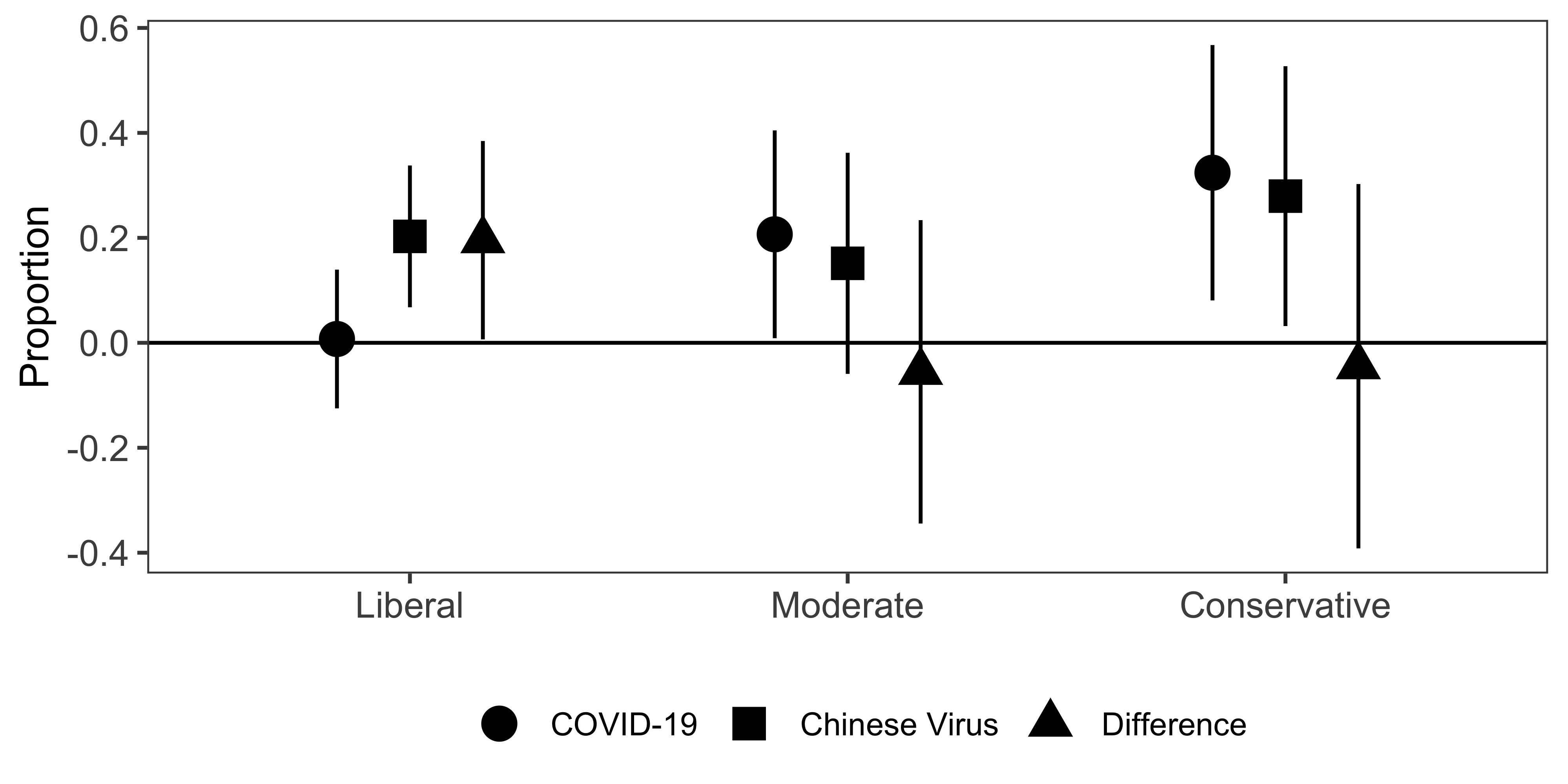Publication Page Online Appendix Data & Code
Abstract
Associating a life-threatening crisis with a geographic locality can stigmatize people from that area. However, such a strategy may reduce the public blame attributed to the government because the perceived foreign threat establishes a scapegoat, which transfers that blame. In the context of the COVID-19 pandemic, we investigated whether the “Chinese Virus” label placed on COVID-19 has elicited opposition to Chinese immigrants and reduced public blame attributed to the federal government. We used a survey experiment during the COVID-19 pandemic, and a list experiment to measure perceived threat. The descriptive analysis suggested a negative attitude toward Chinese immigrants overall, in which conservatives expressed stronger negative attitudes than did liberals and moderates. While labelling COVID-19 as the “Chinese Virus” did not make a difference overall, our exploratory results shows that it led to a significant increase in liberals’ perception that Chinese immigrants are a threat. However, the “Chinese Virus” label showed no effect overall in reducing the extent to which either liberals or conservatives attributed blame to the federal government.
Figure 5: Heterogeneity in the “Chinese Virus” Label Treatment Effect
